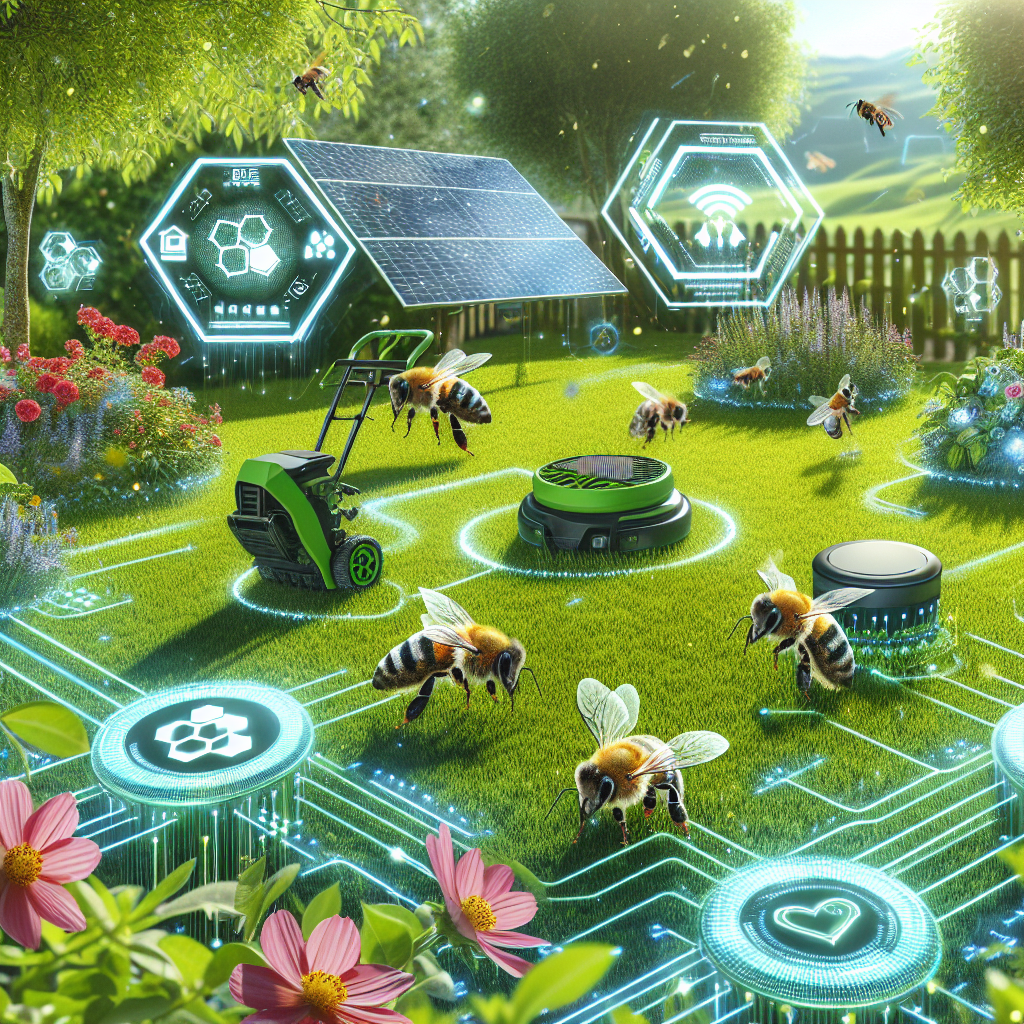Understanding Bee Green Lawn Care
Bee Green Lawn Care focuses on implementing sustainable landscaping practices that prioritize the health and well-being of pollinators, particularly bees. By adopting environmentally friendly techniques, such as reducing pesticide use and promoting native plant species, Bee Green Lawn Care aims to create landscapes that are not only aesthetically pleasing but also supportive of biodiversity.
The Importance of Sustainable Lawn Management
Sustainable lawn care practices play a crucial role in preserving ecosystems and promoting biodiversity. Bees, as key pollinators, are essential for the reproduction of many plant species, making them vital for ecosystem health. By embracing sustainable lawn management, individuals can contribute to the conservation of bees and other beneficial insects.
Key Practices for Bee-Friendly Lawn Care
Choosing Native Plants
Selecting native plants for your lawn is a fundamental step in creating a bee-friendly habitat. Native plants provide food sources and shelter for local pollinators, contributing to the overall health of bee populations. According to Susan Carpenter, a horticulturist, "Native plants have co-evolved with native pollinators, making them well-suited for supporting local bee species."
Integrated Pest Management Techniques
Integrated Pest Management (IPM) involves using a combination of biological, cultural, and physical methods to manage pests effectively. By employing IPM strategies, such as planting pest-resistant varieties and encouraging natural predators, individuals can control pests without harming bees and other beneficial insects.
Avoiding Harmful Pesticides and Herbicides
Chemical pesticides and herbicides pose significant risks to bee populations. These toxic substances can kill bees directly or indirectly impact their health and behavior. To protect pollinators, it is essential to avoid using harmful chemicals and opt for natural alternatives, like neem oil or insecticidal soaps.
Case Study: Bee Green Lawn Care in Action
One successful example of Bee Green Lawn Care implementation is the transformation of a traditional lawn into a vibrant pollinator-friendly garden. By replacing non-native grass species with a diverse mix of native flowers and shrubs, the lawn became a thriving ecosystem that attracted bees, butterflies, and other pollinators. Through regular maintenance and minimal intervention, Bee Green Lawn Care resulted in a lush, biodiverse landscape that showcased the beauty of sustainable landscaping.
Industry Insights on Bee-Friendly Lawn Care
Experts in the field of sustainable landscaping emphasize the importance of incorporating bee-friendly practices into lawn care routines. According to Dr. Rachel Carson, an environmental biologist, "By prioritizing pollinator-friendly habitats, we can create resilient ecosystems that benefit both wildlife and human well-being. Sustainable landscaping is key to preserving biodiversity."
Implications for Environmental Conservation
Adopting Bee Green Lawn Care techniques has far-reaching implications for environmental conservation. By promoting biodiversity, reducing chemical inputs, and supporting pollinator populations, individuals can contribute to the health of ecosystems and mitigate the loss of habitat for bees. Sustainable land management practices play a critical role in addressing the challenges of habitat destruction and species decline.
Conclusion
In conclusion, Bee Green Lawn Care is a holistic approach to landscaping that champions sustainability and ecosystem health. By implementing key practices such as choosing native plants, practicing integrated pest management, and avoiding harmful chemicals, individuals can create bee-friendly environments that support biodiversity and promote pollinator populations. The success of Bee Green Lawn Care lies in its ability to harmonize human activities with nature, fostering landscapes that are not only beautiful but also beneficial to the planet.
Call to Action
To learn more about Bee Green Lawn Care and sustainable landscaping practices, consider reaching out to local experts in your area. Engage with professionals in the field to explore ways to enhance your lawn's ecological value and contribute to pollinator conservation efforts. By taking proactive steps to embrace bee-friendly techniques, you can play a significant role in safeguarding our environment for future generations.
Topics




